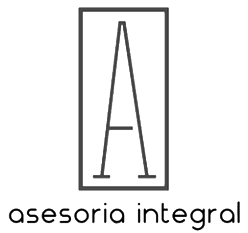Deductible expenses, the key tool of the best-known taxes

Deductible expenses, the key tool of the best-known taxes
Tax optimization is a common concern for freelancers, companies and lately for individuals as well. Understanding the expenses that can be deducted from different types of taxes can help minimize the tax burden. In this article, we will address the deductible expenses in Spain, touching on all taxes but focusing on the very general case, Personal Income Tax (IRPF).
As we already know, the Personal Income Tax (IRPF) is one of the main taxes in Spain and is applied to the income obtained by individuals residing in the country.
This tax is progressive, which means that tax rates increase with income levels, ranging from 19% to 47% depending on the Autonomous Community and the income of the taxpayer. The types of income subject to personal income tax include wages, income from economic activities, business profits, rental income, capital gains, and savings interest, among others. The IRPF allows a series of deductions and reductions based on personal and family circumstances, such as dependent ascendants or descendants (dependent children, people with disabilities), contributions to pension plans, and expenses related to the habitual or rented residence, for mention a few.
But what do we know beyond this tax? How is it applied, who is obliged to pay for it, and what are the others, better known?!? We are going to mention them and address a little more about them in a general way.
EXCLUSIVELY FOR COMPANIES: Corporation Tax
Companies in Spain have the obligation to pay Corporation Tax, which is calculated based on the net profits of the company. However, there are many expenses that can be deducted to reduce these benefits and, consequently, the tax burden.
Deductible expenses must meet certain criteria, the main one being that they must be directly related to the economic activity of the company. These may include personnel expenses, production costs, office or infrastructure rental expenses, marketing and advertising, training expenses and consulting and advisory and management expenses, among others. However, it is essential to keep the accounting correctly registered, detailed and up to date, since the Tax Agency can request proof of any of these expenses, to verify that they are really related to the activity of the company or business.
You can Budget now, select Tax Advice
in the questionnaire and our team will assist you.
Wealth Tax
This tax is applied in Spain to all tax residents with a net worth above a certain threshold. It is a tax that is paid to the state, although it is managed by the Autonomous Communities, which means that the rates and rules may vary by region. It is calculated by adding the value of all the assets and rights you own, such as property, investments, and works of art, and then subtracting any debt that may reduce their value.
This tax is progressive, with rates ranging from 0.2% to 2.5%, depending on the total value of net worth. At the state level, there is a minimum exemption of 700,000 euros, but some Autonomous Communities have higher thresholds.
There are specific deductions and reductions in this tax. For example, there is a reduction for the habitual residence up to an amount of 300,000 euros at the state level. There are also deductions for investments in family businesses or entities under the income allocation regime, under certain conditions. The complexity of the calculation and the interaction with other taxes make professional tax advice advisable.
Inheritance and Gift Tax
As for the Inheritance and Donation Tax, it is a tax that is applied when a person receives an inheritance, a legacy or a donation. Although it is a state tax, its administration and regulation is delegated to the Autonomous Communities, which can result in significant differences in taxation depending on where you reside.
The tax is calculated based on the net value of what has been received and the rates are progressive, varying depending on the value of what is transmitted, the degree of kinship between the donor and the recipient, and the personal and family conditions of the recipient. It should be noted that spouses, descendants and ascendants have a reduction in the tax base.
There are various deductions and reductions available that can reduce the tax burden. These may vary from one Autonomous Community to another, and include reductions for inheritances or donations to family members, donations for the purchase of your first home, or donations to start or expand a business. Given the complexity of this tax, it is advisable to have professional tax advice.
Conclusion
Deductible expenses are a useful tool to reduce the tax burden, both for individuals and for companies and the self-employed. It is essential to understand what expenses are deductible for each type of tax and to maintain detailed records and documentation to support these expenses.
Remember that tax laws may change over time and that tax deductions may vary depending on the Autonomous Community. In addition, each situation is unique, so it is always advisable to obtain professional tax advice to fully understand your tax obligations and rights.
Our advice can be in charge of helping you on this issue and it will no longer be a problem for you. We have a team of tax specialists that can guide you at all times on how to act or recognize each expense and how to proceed to document and declare everything correctly.
Taxes are the results of almost any taxable event and many times they are personal and non-transferable, adjust them now to your circumstances!
You can Budget now, select Tax Advice
in the questionnaire and our team will assist you.




